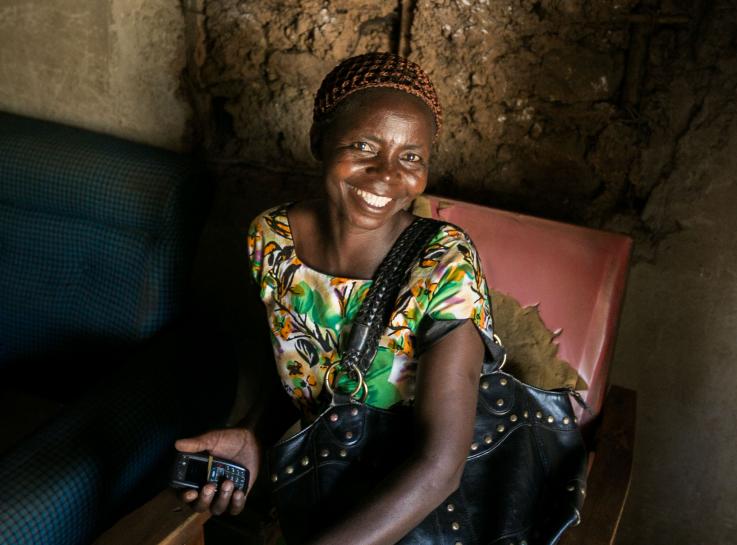
Seattle, WA – Alison Drake is one of 28 Grand Challenges Explorations grant winners, announced today by the Bill & Melinda Gates Foundation. The funding will allow Drake, an Assistant Professor of Global Health at the University of Washington, to launch an innovative family planning and technology research project.
The project will use personalized text messages to collect information on contraceptive use and preferences from women receiving services at maternal and child health clinics in Kenya, with a special focus on adolescents.
Grand Challenges Explorations (GCE), funded by the Bill & Melinda Gates Foundation, supports innovative thinkers worldwide to explore ideas that can break the mold in how we solve persistent global health and development challenges. To receive funding, Drake and other Grand Challenges Explorations winners demonstrated a bold idea in one of four critical global heath and development topic areas. The foundation will be accepting applications for the next GCE round in September 2017.
Drake’s 18-month project offers a low-cost way to understand women’s experiences and preferences around family planning methods over time. Enrolled women will receive weekly questions and messages in a preferred language, personally tailored to their method of choice, and will be able to reply at no cost. Follow-up texts will be customized based on prior responses, to further contextualize women’s answers. “This information can be used to help develop tools for clinicians to help women make informed contraceptive choices that are best suited for them based on their needs, values, and preferences for family planning, which will lead to lower discontinuation rates,” said Drake.
An important component of the research will be working with younger women. As recognition of the importance of the health of adolescents grows, it has surfaced a gap in the amount of data that exists on the contraceptive preferences and behaviors of young women, especially when it comes to switching or stopping family planning methods.
“Decisions about whether to continue using contraceptive methods are often made without any interaction with the health care system or providers, and are not captured in current surveys. We want to understand what experiences women have after leaving a family planning clinic, what challenges they encounter when using contraception, and use this data to inform development of tools, technologies, and guidelines to optimize their experience with contraception ,” said Drake.
An interdisciplinary team with extensive experience working on projects that utilize mobile technology for reproductive health research in Kenya will collaborate on the project. The team includes Jennifer Unger, MD, MPH, Assistant Professor of Global Health and OBGYN; investigators at PATH; and mSurvey, a group of technology experts based in Nairobi.
“We know that access to family planning can dramatically improve multiple dimensions of women’s lives, yet there are more than 200 million women living in low-resource settings around the world that don’t have access to the tools and methods that meet their needs. This grant will be instrumental in expanding the evidence base on what works for women, especially young women, to help ensure that they are in charge of their reproductive health and their futures,” said Judy Wasserheit, Chair of the Department of Global Health, Professor of Global Health, Allergy and Infectious Disease, and Adjunct Professor of Epidemiology.
The study will help inform future contraceptive technology development and strategic direction for family planning policy and programming worldwide.
(By Alex Murphy)
About Grand Challenges Explorations
Grand Challenges Explorations is a US$100 million initiative funded by the Bill & Melinda Gates Foundation. Launched in 2008, over 1,285 projects in more than 65 countries have received Grand Challenges Explorations grants. The grant program is open to anyone from any discipline and from any organization. The initiative uses an agile, accelerated grant-making process with short two-page online applications and no preliminary data required. Initial grants of US$100,000 are awarded two times a year. Successful projects have the opportunity to receive a follow-on grant of up to US$1 million.
About the University of Washington Department of Global Health
The Department of Global Health at the University of Washington was established in 2007 through a generous gift and endowment from the Bill & Melinda Gates Foundation and complementary Washington state resources. Bridging the schools of Medicine and Public Health at UW, the Department of Global Health harnesses the expertise and interdisciplinary power of all UW schools and colleges. It has more than 390 faculty and includes 27 centers, programs and initiatives.